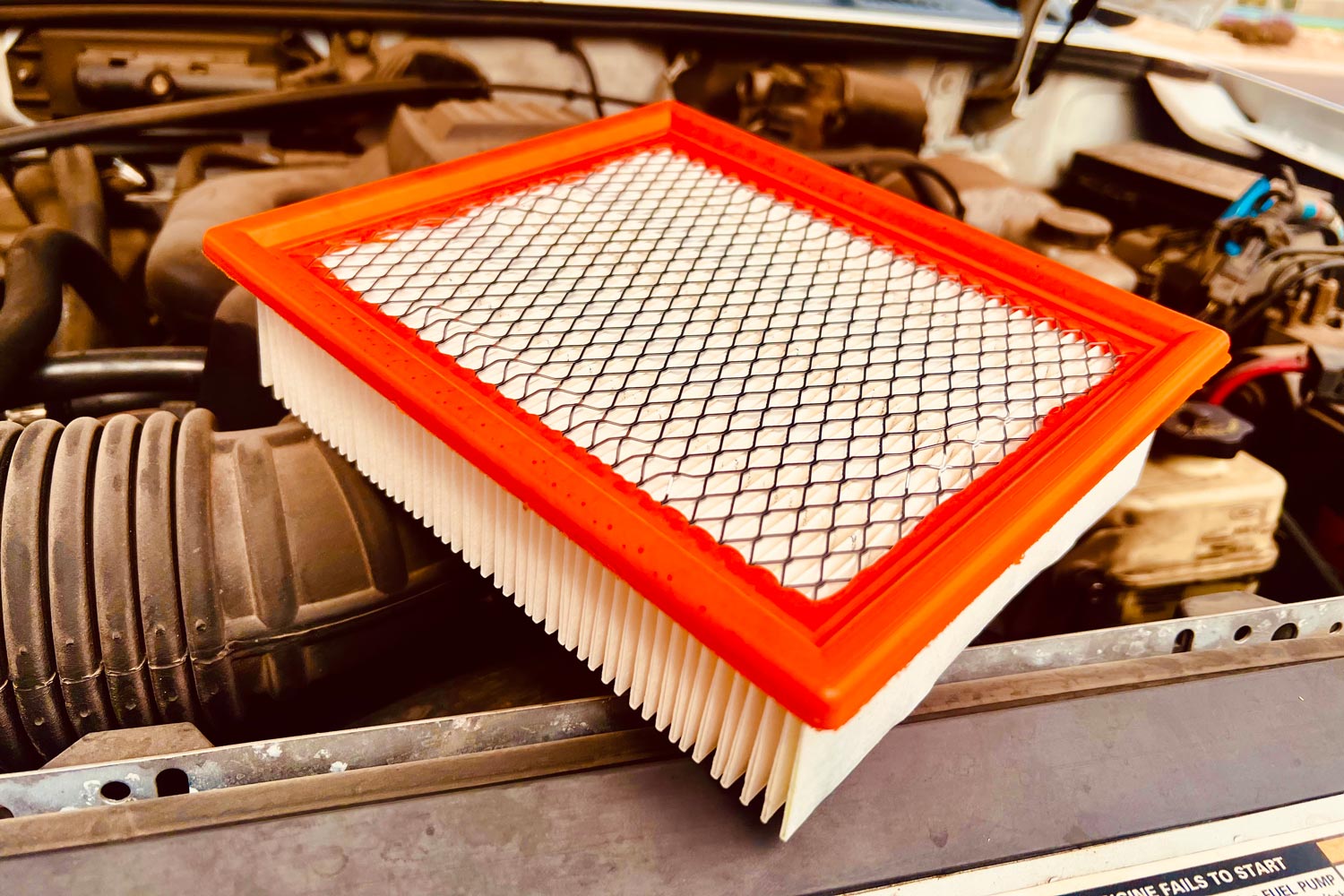How to Pick the Best Engine Air Filter
Regular maintenance of this important engine component can be simple and affordable.
 Kara Snow | Capital One
Kara Snow | Capital One
Automotive engines fueled by gasoline or diesel need outside air to mix with fuel for the combustion that generates power. What they don’t need is any of the grit, pollen, and dust that floats around in the air. This is where an engine air filter comes in, trapping dirt before it can be sucked into the intake and potentially cause damage or reduce fuel efficiency and performance.
Here's how you can choose the right engine air filter for your vehicle.
What Size Engine Air Filter Do I Need?
There are two main types of engine air filter designs out there. The first is the drop-in panel type, which is typically rectangular or square and fits into an enclosed cavity in the air intake plumbing. The second is a cone filter that attaches to the opening at the front of the air intake without an enclosure.
Most vehicles are outfitted with a panel-type air filter from the factory. The easiest way to know which size you need is to open the engine air-filter housing, remove the filter, and bring it with you to the auto parts counter. You can also check in your owner's manual for the air filter part number or look it up online.
If you have a cone filter, it's even easier to remove and bring with you for comparison to a potential replacement. You may also have more wiggle room with a cone filter, as it doesn't have to be stuffed inside a housing, allowing you to go slightly larger or smaller if desired — as long as it attaches properly to the air intake plumbing.
What Type of Engine Air Filter Should I Buy?
The vast majority of engine air filters make use of a dry paper filtration element that is both effective and inexpensive. You might also encounter air filters that use synthetic filtration materials and can be washed and reused or filters that are made of cotton with a thin layer of oil that works to capture contaminants. These filters claim improved airflow and better air cleaning and are particularly common in high-performance applications.
For daily drivers, a paper air filter is a solid and affordable choice, generally starting around $15. For a sports car, however, you might want to invest in an oiled cotton filter, which in some cases could allow your motor to breathe deeper but can also cost three or more times the price of a paper filter. If you’re concerned with the environmental effects of regularly replacing a paper filter, then a washable, reusable filter might be more appealing.
How Often Should I Change My Engine Air Filter?
Your owner’s manual has the definitive answer for how often you should change your engine air filter. In general, it should be done at least once a year. If you frequently drive on dusty dirt roads or in off-road environments, you should change it more often. If you suspect your vehicle’s performance or fuel efficiency has started to suffer due to a clogged air filter, it's worth inspecting the installed filter to see if it needs to be replaced.
Written by humans.
Edited by humans.
 Benjamin Hunting
Benjamin HuntingBenjamin Hunting is a writer and podcast host who contributes to a number of newspapers, automotive magazines, and online publications. More than a decade into his career, he enjoys keeping the shiny side up during track days and always has one too many classic vehicle projects partially disassembled in his garage at any given time. Remember, if it's not leaking, it's probably empty.
Related articles
View more related articles